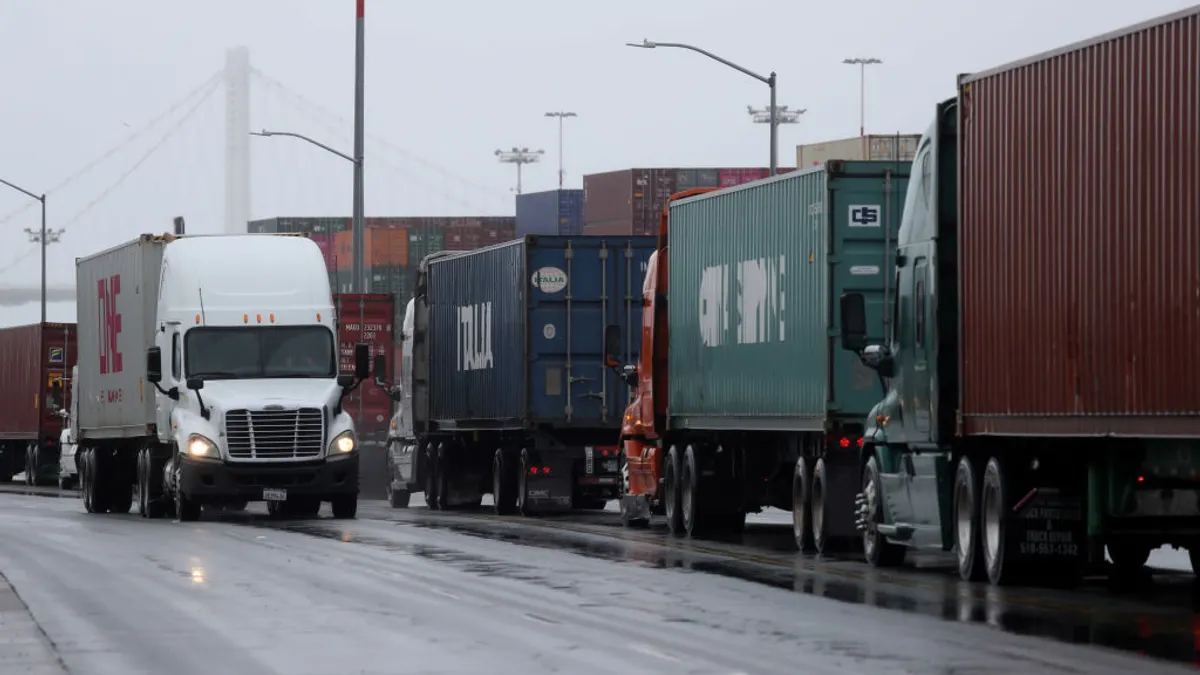Dive Brief:
- Only about half of drivers are happy with their jobs, and satisfaction has significantly dropped since 2019 among women drivers, younger drivers and those with eight or fewer years of experience, according to a survey of hundreds of drivers.
- Failing to invest in satisfaction can be costly, per the survey, and employee needs are complex, where even happy drivers are looking for new jobs. In 2019, only about a quarter of happy drivers reported looking for a job in the last three months, but now that’s affecting 44% of those drivers.
- Increasing base pay compensation is the leading factor to improve driver satisfaction. But “for some, a raise may not be enough,” said Drive My Way, the truck driver recruiting platform that conducted the survey. “While pay continues to be most important, good listening and communication are critical to improving driver happiness.”
Dive Insight:
Motivation for seeking better opportunities within the industry can stem from a variety of sources, such as pay, routes and benefits, according to the American Trucking Associations.
Truckers noted this variety in Drive My Way’s survey, reporting that while pay is the leading solution, the second most frequent response was better communication and listening by management. Responses in the survey came from over 500 CDL drivers in late 2022 and early 2023.
Fleets have come to similar conclusions, aiming to improve better communication with workforces through measures such as weekly pulse checks. To improve retention, more carriers have worked to provide guaranteed pay and improve what information is provided to drivers, the survey noted.
In addition to increasing base pay, the next leading reason to improve job happiness was better communication and listening from management, according according to the survey.
"Driver wages, despite making those notable gains, remain quite complicated,” Leah Shaver, president & CEO of The National Transportation Institute, whose organization assisted with the survey, said in a news release. “The common aggravator today may not be drivers' base wages,” noting a “lack of productivity (aka fewer miles, hours, and loads) is pinching their take-home pay.”
The survey included over 500 CDL drivers.
Newer drivers, particularly those with one to two years of experience, reported significantly lower happiness than their counterparts of other experience levels, and they also reported lower levels of getting the information they need to be successful.
Drivers with one to two years of experience reported significantly lower happiness than those more seasoned workers as well as those just starting off, and their group also ranked lowest in reporting that they receive the information they need to succeed.
Those drivers with two years experience or less also are highly likely to switch jobs, the report said, finding that three out of every four of workers sought new employment in the last three months.
“The biggest culprit? Feeling set up to fail,” the report said. “A mere 40% of drivers at this stage reported that they get the information they need to be successful.”










